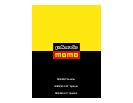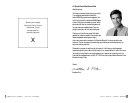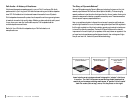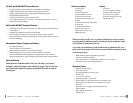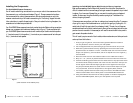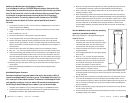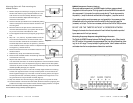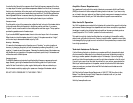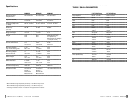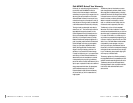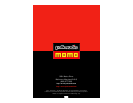
P O L K A U D I O / M O M O D E S I G N
14
A M E R I C A N P O W E R , I T A L I A N F I N E S S E
15
Amplifier Power Require m e n t s
Your speakers will work well with a variety of electronic components. As little as 25 watts
(RMS) per channel will deliver adequate listening levels in most cars. If you have a noisy
car or intend to play your system at loud listening levels, more power is necessary to achieve
the best performance. Consult your Polk Audio dealer for specific recommendations.
Safe Limits Of Operation
Your Polk loudspeakers are made with the highest quality materials for years of trouble-free
performance. However, damage to loudspeakers can occur when an amplifier, regardless of
its wattage, is made to play at higher listening levels than its power can cleanly produce
(usually beyond the “2 to 3 o’clock” position on the volume control).
This results in very high levels of audible distortion, originating in the amplifier, which
adds a harsh, gritty sound to the music. Contrary to popular belief, a speaker is more likely
to be damaged by trying to get too much volume from a low-powered amp or receiver than
from a high-powered one.
Technical Assistance Or Service
If, after following the hook-up directions, you experience difficulty, please double check
all wire connections. Make sure that your electronic equipment is operating correctly by
hooking up another speaker to the speaker output. For example, if you are not getting
sound from the left channel speaker, connect the right channel speaker to the left output.
If you still get no sound from that side, the problem is in your amp or source electronics.
Should you isolate the problem to the speaker, contact the authorized Polk Audio dealer
where you made your purchase. Authorized Polk Audio dealers are the best source for
advice and assistance.
Call Polk Audio’s Customer Service Department at 1-800-377-7655 from 9am to 6pm,
Eastern Time, Monday through Friday. Please do not hesitate to call us if you have
questions about your speaker system.
Visit http://www.polkaudio.com
It works like this: Normally the crossover rolls off the high frequency response of the driver
in a steep slope. But when a great distance separates a tweeter from the driver (for example,
the driver is on the bottom of the door panel, and the tweeter is on the top of the door panel
or dash) getting a good driver-to-tweeter blend may be difficult. The Mid-Range Extension
feature bypasses the driver’s crossover, extending the response of the driver to better meet
that of the tweeter. Experiment to find the setting that best suits your installation.
Tweeter Level
The slide switch on top of the crossover box adjusts the level (volume) of the tweeter relative
to the mid/woofer. Start with the switch in the bottom position and listen. If you want a
“brighter” sound, move the switch to the middle position and listen again. The top position
provides the greatest amount of tweeter output.
If you have the MM400 separate tweeter, there is a blue wire loop on the in-line crossover.
When the wire is intact the tweeter plays at full output. If the system sounds too “bright,”
cut the wire loop to decrease the tweeter output by 3 dB.
Polarity / Blending
If it seems that the tweeters and mid/woofers are not “blending” or working together in
harmony, try changing the polarity of both the tweeters by reversing the positive (+) and
negative (-) tweeter wires at the crossover. Reversing the absolute phase of the tweeters may
help the blending or integration of the system components, particularly if the tweeters and
mid/woofers are on different planes.
Tweeter Angle
The MM400 tweeters may be pivoted to get the best high frequency response and sound-
stage. Generally, pointing the tweeters toward the listening position will yield the best
results. But don’t be afraid to try other angles. Use the position that sounds best to you.
Pivot the tweeter module by applying firm pressure on the edge of the tweeter module.
DO NOT APPLY PRESSURE TO THE DOME ITSELF.



